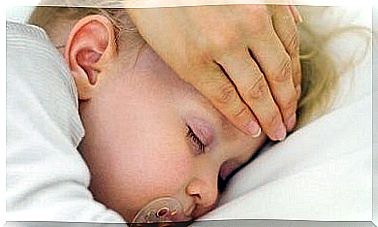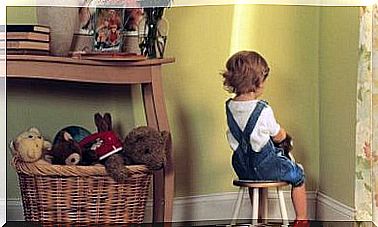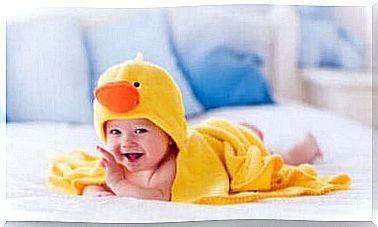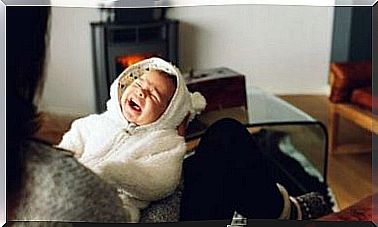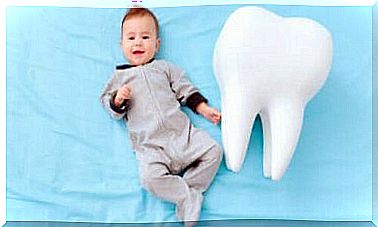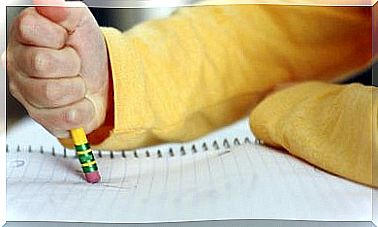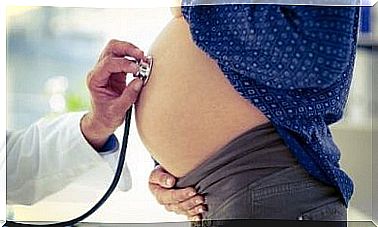What To Do If Your Child Drools A Lot
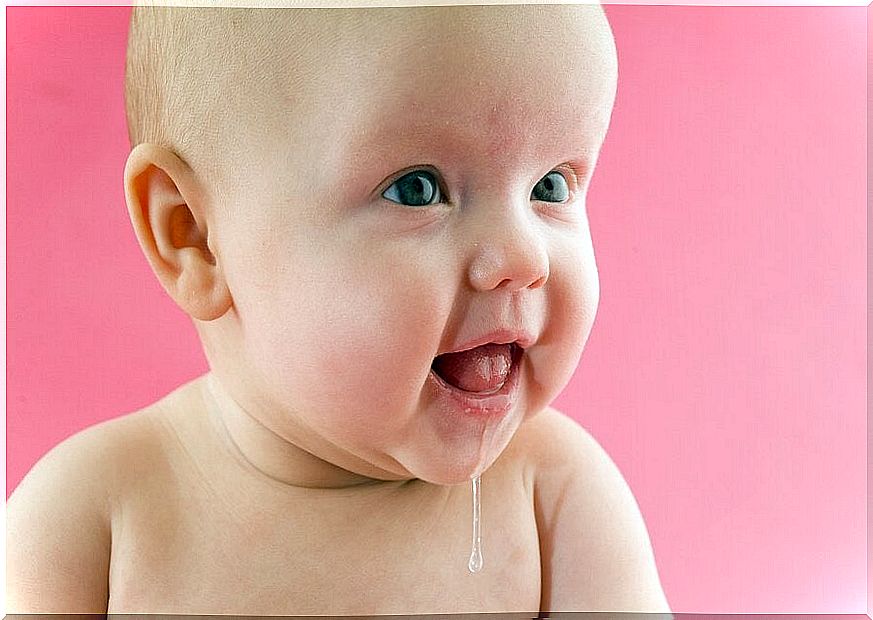
Babies drool naturally from the time they are born. An increase in saliva creates the path for the appearance of teeth and the intake of solid foods. However, excessive salivation can also be a sign of certain problems.
At this age, babies start sucking and chewing on everything, and the production of saliva increases without the baby even noticing it. Therefore, it is natural for babies to drool.
It all has to do with babies’ swallowing system. When babies drink, they use the muscles in their mouths to suck and swallow. However, the production of saliva occurs automatically and it remains in the baby’s mouth until it overflows.
A bib is a great tool if your baby drools a lot. They keep your baby’s breasts from getting wet, and they also help keep the baby warm. We also need to pay attention, and keep our baby’s mouth dry, to avoid possible irritation.
When a baby has a cold, it is normal for saliva to become excessive. If you notice this change, even if your baby is not ill, you should consult your pediatrician.
If your baby’s salivation persists for a long time, it could mean that there is a problem in the nervous system. As a result, your baby will not be able to swallow properly.
If your baby has difficulty eating and drools a lot, it may hurt when he or she swallows. The cause is, in general, a viral infection that creates pain or soreness in the mouth.
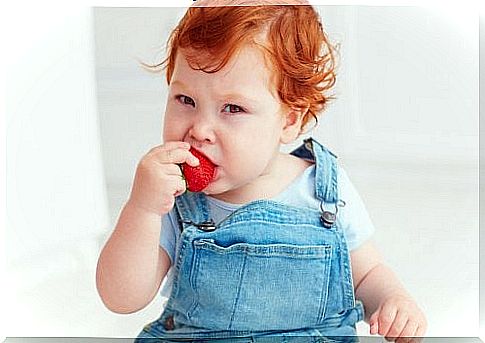
If your child drools a lot, he or she may be at risk of suffocation or constant nausea. It can also cause your child to have respiratory problems. In both of these situations, it is important that you remain calm, and take your child to the pediatrician, to rule out any kind of illness.
Finally, it is also important to remember that babies have an immature swallowing reflex, and this can be for some time.
Obviously, one of the main reasons why babies drool excessively is because their teeth erupt. While they may take some time to emerge, the cores of the baby’s teeth begin to move around the gums at 2 months of age.
Saliva contains enzymes that help fight certain infections. This is why the production of saliva increases when your baby’s first teeth start to erupt. At this point, your child will probably benefit from using a bite ring. These are useful tools to provide relief in the sore gums – however, they will also trigger saliva production.
At the same time, one of the first things that babies discover is their hands. When they do this, they will start putting them in their mouths. This allows them to discover new sensations. By playing with their hands, babies will stimulate saliva and begin to drool.
This habit is beneficial when babies start eating solid foods. For example, they reach out for their food and put it in their mouths as part of exploration. Little by little, they learn to eat solid foods on their own.
Of course, when babies start chewing on their fingers, and playing with their tongue, this stimulates the production of saliva. Saliva is an important part of softening food and swallowing it.
Infants tend to bite in the areas of the gums where the teeth are heading out. This region tends to be swollen and red. Saliva is quite pronounced and necessary at this stage as it keeps the area hydrated and prevents infection.
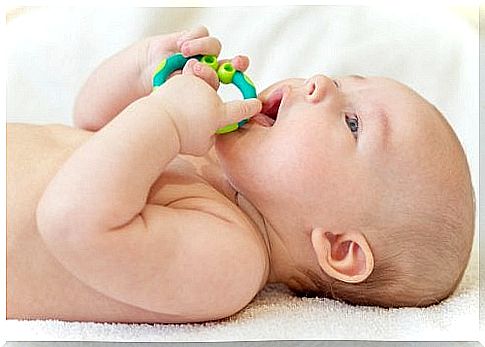
The new tastes and sensations that babies experience when they start eating solid foods stimulate their taste buds. This also causes the little ones to drool more than usual. The role of saliva, in this case, is to lubricate and help the food on its way down into the stomach.
You should pay special attention to your child’s salivation if it goes beyond what you think is normal. In general, children drool until they reach 18 months of age, although this may vary. It all depends on your child’s individual developmental process, his or her acceptance of solid foods and tooth eruption.
That said, there is no need to be on guard. Always have a bib or cloth on hand, as well as a pacifier or bite ring, to help your baby through this stage. Explore calmly and enjoy this phase of your baby’s infancy. Remember, every single moment in your baby’s life, whether good or bad, is unique.
